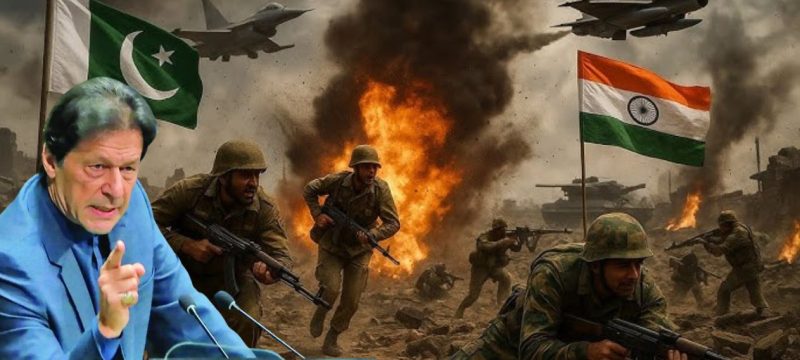Former Prime Minister of Pakistan, Imran Khan, took to Twitter on Monday to voice his deep concerns regarding the recent Pahalgam attack in Indian-administered Kashmir, calling the loss of human life in the incident “deeply disturbing and tragic.” His tweet has sparked widespread online debate, with both supporters and critics weighing in on his remarks.
Khan, who is currently incarcerated in Adiala Jail, expressed his condolences to the victims and their families, emphasizing the significance of peace in the region. He recalled the 2019 Pulwama attack, where India accused Pakistan of being behind the incident, a claim Pakistan firmly denied. Khan’s message underscored Pakistan’s consistent stance of offering cooperation in the aftermath of the incident, but also pointed out that India failed to provide concrete evidence to support its allegations.
Read more: Federal Minister of Information Statement on Pahalgam Incident
“In 2019, after the False Flag Pulwama Operation, we offered to extend all-out cooperation to India, but India failed to produce any concrete evidence,” Khan wrote. “As I predicted in 2019, the same is happening again after the Pahalgam incident. Instead of introspection and investigation, Modi Sarkar is again placing the blame on Pakistan.”
Khan’s tweet continued with a call for India to act responsibly given its size and status as a nuclear power. “Being a country of 1.5 billion people, India needs to act responsibly instead of messing with a region already known as a ‘nuclear flashpoint.’ Peace is our priority but it should not be mistaken as cowardice,” he stated. “Pakistan has got all the capabilities to give a befitting response to any Indian misadventure, as my government, backed by the whole nation, did in 2019.”
The former PM reiterated his long-standing position on Kashmir, calling for the Kashmiri people’s right to self-determination, as per United Nations resolutions. He condemned the Indian government’s actions, particularly the abrogation of Article 370, which he believes intensified the desire of the Kashmiri people for freedom.
“India, led by RSS ideology, poses a grave threat, not only to the region but beyond it,” Khan warned. “Indian oppression in Kashmir, intensified after the illegal abrogation of Article 370, has further fueled the Kashmiri people’s desire for freedom.”
The tweet took a sharp political turn as Khan criticized Pakistan’s current leadership, accusing them of failing to stand up against India due to their foreign business interests. He directed strong criticism towards political figures like Nawaz Sharif and Asif Zardari, suggesting that their silence on India’s actions stems from their illegal wealth and fear of foreign repercussions.
“It is naive to expect any strong stance from self-serving figures like Nawaz Sharif and Asif Zardari. They will never speak out against India because their illegal wealth and business interests lie abroad,” Khan claimed. “They profit from foreign investments, and to protect those financial interests, they remain silent in the face of foreign aggression and baseless allegations against Pakistan.”
Khan concluded his tweet by stressing the need for national unity in the face of external threats, urging the nation to put aside internal political divisions. He called for an end to political victimization, which he argued was deepening internal divisions at a time when Pakistan needed solidarity to confront its external adversaries.
“To win the war against an external enemy, the nation must first be united,” he wrote. “It is high time to put a halt to all actions that are further polarizing the nation. The state’s excessive focus on political victimization at this critical time is deepening internal divisions and undermining the nation’s collective ability to confront external threats.”
The tweet has ignited a fierce debate across social media platforms, with many supporting Khan’s views on Kashmir and the need for unity, while others criticized his tone and the political implications of his remarks. As the debate intensifies, Khan’s call for national unity and a firm stance against India continues to resonate with many of his supporters, while his detractors continue to focus on his political claims against Pakistan’s leadership.
Meanwhile, Khan’s discussion with his lawyers in Adiala Jail on April 29th also touched on the country’s current political situation, with the former premier expressing his frustration over the ongoing political victimization. His legal team is continuing efforts to secure his release, amidst mounting calls from his supporters for his return to active politics.
As the situation unfolds, the discourse surrounding Imran Khan’s latest statements is likely to influence the political climate in Pakistan, further intensifying the ongoing debate over the country’s foreign policy and internal political dynamics.









